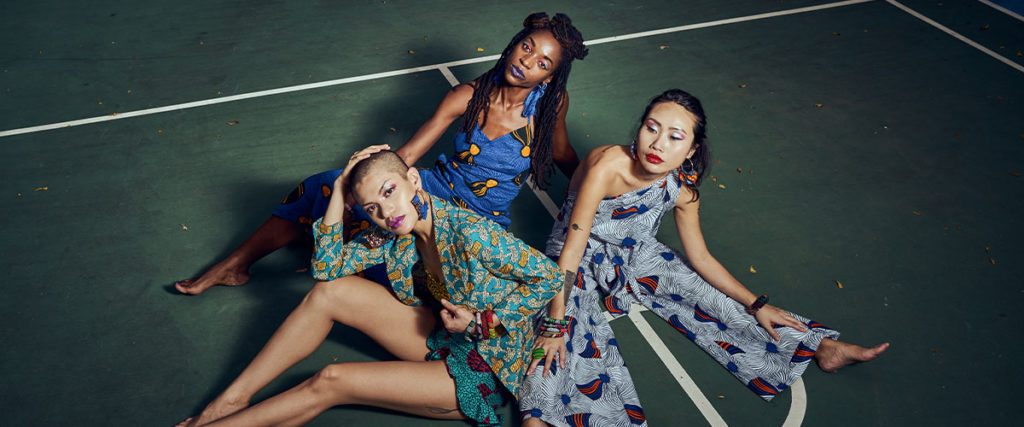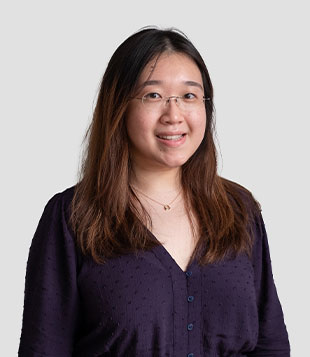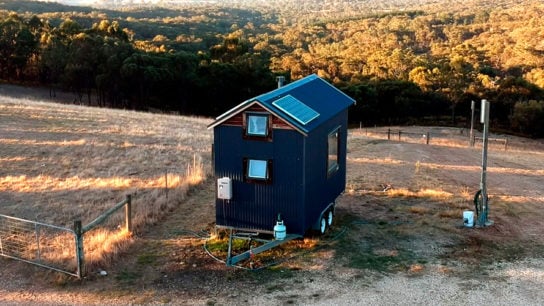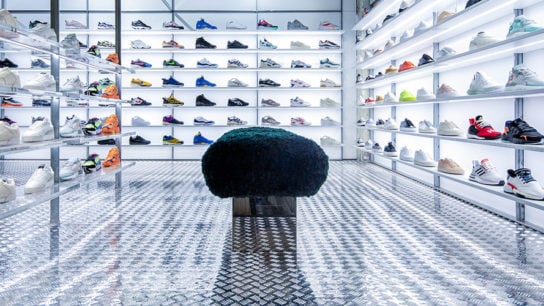Singapore-based fashion brand OliveAnkara is using a unique blend of African fabrics, Italian craftsmanship, and Asian designs to showcase cultural diversity and spread appreciation. Founder Ifeoma Ubby weighs in.
Born and raised in Italy in a Nigerian family, fashion designer Ifeoma Ubby first came to Singapore seven years ago, having completed her PhD, as a cancer researcher. However, it was actually her wedding in 2016 that led her to want to take a more active role in promoting African representation in Singapore, when she incorporated beautiful, vibrant African fabrics into her wedding gown.
Taking advantage of the city’s reputation as a melting pot of cultures, she switched over to the creative industry, launching her fashion label OliveAnkara in 2017. Selling products ranging from infinity dresses, Afromonos, and Cheongsams to jewellery, headbands, and, most recently, face masks, Ifeoma aims to create a fashion brand that represents her unique upbringing and cultural background.
Here, she talks to Hive Life about African representation – or the lack thereof – in Singapore, her creative inspiration, and her thoughts on cultural appropriation.
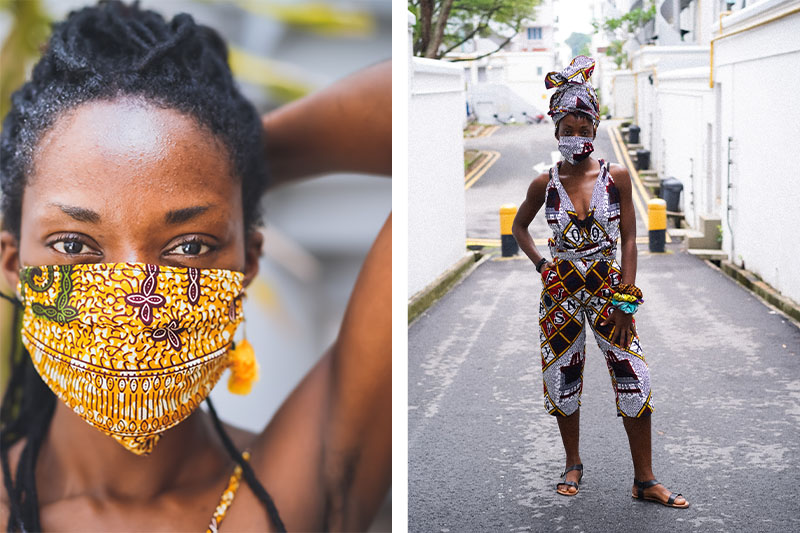
What inspired you to start OliveAnkara?
I actually come from a science background – I came to Singapore seven years ago to continue my cancer research at the National Cancer Centre. But I’ve always been exposed to arts because my family is into designing – my dad is an architect, both my mum and sister work in the fashion industry, and I learnt how to sew from my mum.
After I moved to Singapore, I was looking for African fabrics and African clothes but couldn’t find any, so I would “steal” my mom’s clothes and bring them here to Singapore. After a while, my grandmother gave me pieces of fabric so I could make my own clothes instead of taking my mom’s, and whenever I wore these clothes, I noticed people would get really interested! I received a lot of compliments about the colours of the fabric and questions about where they were from.
Fast forward, my husband and I decided to get married in August 2016, so I designed my own wedding gown for the big wedding we were going to have in Thailand. My aunt in Nigeria went to the market to help me source the fabric and get it made. Having been sourced in Nigeria, created using African fabrics, and shipped all the way to Thailand, that dress was my biggest creation yet and that was the moment I decided to work on OliveAnkara. One year later, we launched the brand!
What’s the meaning behind OliveAnkara?
Ankara is the name of the fabric used in West Africa for clothing, and it’s made with wax on one hundred per cent cotton. It can also be called the African wax or the African batik because the technique used to make Ankara is very similar to the Indonesian batik. Olive is just a name I really liked, so I combined the two together!
I noticed the mix of cultures in your products, especially with the use of African wax to produce cheongsams and kimonos. What is the source of inspiration?
OliveAnkara celebrates the richness and diversity of all cultures, and to me, it represents my own journey. The fabrics come from my African heritage, all of my designs have an Italian twist because I was born and raised there, then everything else is made here in Singapore. For the Cheongsams and Afromonos, I decided to do those designs because they were closer to my current way of life as well as the people I meet here in Singapore.
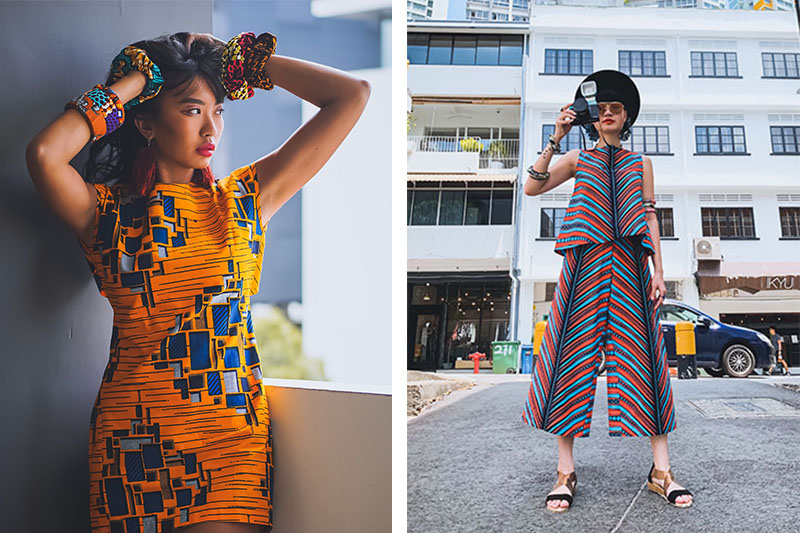
Some companies have been criticised for cultural appropriation – what are your thoughts on this? What constitutes cultural appropriation and how do you steer clear of it?
It’s a hot topic, but I believe that the idea of cultural appropriation cannot be directly applied to OliveAnkara because of the history and origins of the African wax. The Batik technique actually came from Indonesia, then the Dutch brought over their batik technique to Africa when Indonesia was still a Dutch colony. So, really, the Dutch were the first to produce this kind of fabric for the African market. Then, afterwards, when the African countries gained independence, they started building their own textile mills and factories to produce their own fabric with their own designs, which then eventually evolved into African prints to reflect African culture and lifestyle.
The other thing I want to point out is that cultural appropriation only happens when someone uses elements from another culture and claims it as their own or takes advantage of it. There’s a fine line between cultural appreciation and cultural appropriation. When someone wears a head wrap or clothes with African prints, they’re just showing, enhancing, and evolving another culture. It does not really harm anyone as long as they’re wearing it in a respectful way and know the story and history behind it. I personally don’t see a problem with wearing garments from other cultures because at the end of the day, how can I elevate my culture if I just make it accessible to people from my own culture?
Can you tell us about the driving mission behind your initiative to donate 10% of your profits from face masks to local charities that help migrant workers?
To be honest, I just started making face masks for my friends and my husband back in February when COVID wasn’t that serious. But then, one of my clients saw that I had this mask and started asking me to sell them. Another thing I started realising was that there was a lot of waste coming from disposable masks. Two months ago, we were just talking about plastic waste and now it’s masks? Come on, it’s not good! One of the pillars of OliveAnkara is zero waste – we try to create new products with the leftover scraps we have from producing our clothes, so then I decided to start making face masks as well.
At the same time, I didn’t want to sell face masks just for the sake of making money because in Italy, for example, people are trying to find face masks, but they can’t find it anywhere. This is why I decided to donate part of the profit to local charities and give back to the community in some way.
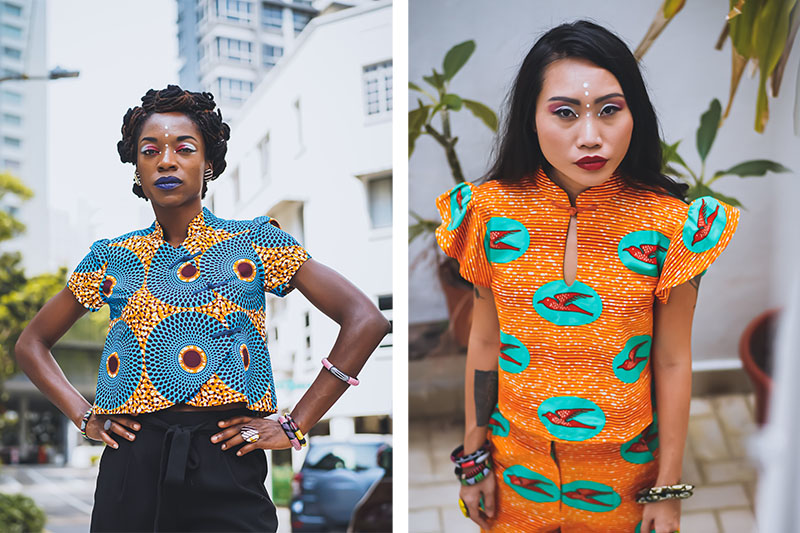
How diverse would you say Singapore is in terms of bringing in African representation?
African representation is really lacking in Singapore. When I came, I realised that there were no black communities here and I could count on my fingers how many black people I had met in a month. Not a lot of people here know about Africa either – the geography, the food, and the music, and I think that’s because the media doesn’t really speak a lot about what is happening outside of Asia.
This is essentially the reason why I started this business – not only to sell African fabrics and clothes, but also to educate people about African culture and I do so on my social media, website, and when clients come to my showroom. The good thing is that people are really curious and open-minded about African culture, and now people are starting to be awakened with all the things that are happening. People are starting to reach out to more black-owned businesses or black artists. So, things are changed, but they are still changing, and there’s still a lot to do.
What are the future plans for OliveAnkara?
We want to expand, and not only as a clothing brand. We want to become a reference point for people in Asia to come to when learning about African design.
Related Articles
Harmony Ilunga: The Woman Turning The Tide on Racism in HK
Kayla Alexander: WNBA Player on the Importance of Diversity
Christina Dean: The Woman Leading a Global Movement in Fashion Sustainability
